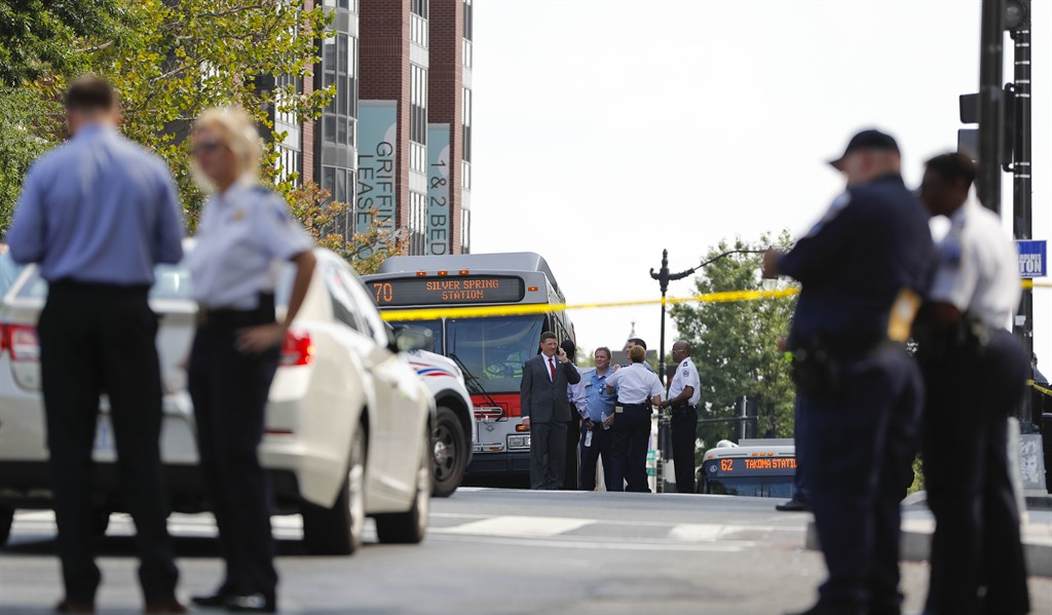For those of us in Second Amendment advocacy, it is a fact of life that academia and the professoriate have marshaled their resources against us in unprecedented ways. Because they’re constantly cranking out “scholarship” from the Ivory Tower whose sole purpose is to undermine our right to keep and bear arms, it is refreshing to see a study that will look into the real perpetrators of violence and taxpayer-funded programs that are aimed at stopping them. This report from DCist offers some hope:
D.C.’s Violence Intervention Programs To Receive In-Depth Evaluation
Two gun violence experts will spend the next four years studying D.C.’s violence interruption programs. Their goal is to figure out what these programs are doing right — and where they could improve.
Their effort will be the most in-depth and rigorous evaluation of D.C.’s violence intervention programs to date. It’s funded by Arnold Ventures, a philanthropic foundation that funds criminal justice-focused studies.
Arnold Ventures put out a call for applications last year — and Webster and his research partner, University of Maryland professor Joseph Richardson, applied. Webster has been studying Baltimore’s violence intervention programs for about 15 years, but for this project, he decided to switch his focus to the District.
Prof. Daniel Webster works at the Center for Gun Violence Solutions at the Michael Bloomberg-funded Johns Hopkins School of Public Health, which purports to look at the criminal misuse for firearms as an issue of public health, not criminology or sociology, to use pronouncements from white lab coats to override of our founding principles. His research partner Prof. Joseph Richardson works at the Department of African-American Studies. Arnold Ventures is a charitable foundation that uses an evidence-based approach to supports causes in the areas of criminal justice, higher education, health, and public finance.
My negative and cynical views on the Bloomberg School of Public Health notwithstanding, I’m happy to see this project come into being.
Officials with D.C.’s Office of Gun Violence Prevention say they’re excited about the study — and also added that they too are looking top to bottom at D.C.’s violence prevention programs to see what can be improved.
In 2018, D.C. launched two violence intervention programs: Cure the Streets, under the D.C. Attorney General’s office, and a separate program under Mayor Muriel Bowser’s Office of Neighborhood Safety and Engagement. The programs contract with community-based organizations to employ workers called violence interrupters in D.C. neighborhoods with some of the highest rates of gun violence.
[….]
The D.C. Auditor examined the programs in a 2022 report that found mixed results. A Ph.D. student at American University also recently published a study on Cure the Streets, though some experts (including Webster) have raised concerns about its methodology. But the city has never had researchers formally evaluate their violence prevention programs’ effectiveness — despite spending millions of dollars on them.
This is a good approach to governance. Spending millions of other people’s money warrants a critical examination of the results. Governing by good intention is not enough. As the old saying goes, the road to hell is paved with good intentions.
“We have funded violence interrupters and social workers for 30 years,” former Ward 2 Councilmember Jack Evans in a Washington Post op-ed earlier this year, for example. “Unfortunately, it has never worked. Let’s figure out why before spending more money.”
And Webster says there’s some credence to that opinion.
[…]
Such questions have taken on renewed urgency in recent years, because homicides in the District remain at levels the city hasn’t seen in two decades. While murders remain significantly down from where they were in the 90s, they’ve increased every year between 2018 and 2021. While homicides fell 10% in 2022, the city still lost 203 people to homicides that year and saw a steep rise in killings of teens. And so far this year, homicides are 30% up compared to this time last year.
Clearly, something in D.C. is really broken, specifically in the poorer and predominantly black parts of the city,
Webster and Richardson plan to use both data analysis and interviews for the study. The key metric they’ll focus on is incidents of gun violence: homicides with guns (the vast majority of homicides in the District), as well as assaults involving guns.
They’re also going to interview violence intervention workers, as well as the residents at the center of the city’s gun violence.
“We’re going to ask them [about] their own experiences, and if or how the program has impacted their lives in key ways relevant to their risks for engaging in gun violence,” Webster says. Because, he says, interviews can reveal what numbers sometimes can’t.
I hope the quantitative and quantitative methods that will be employed by the researchers produce useful insights that will help reduce violence. Those of us in the gun rights community have a vested interest in studies like this because they will look at the root causes of violence and the efficacy of specific solutions, instead of blaming the ownership of guns by the mostly peaceable and non-violent members of society at large.
The good news is that we won’t have to wait for too long to start seeing results of Prof. Webster and Prof. Richardson’s work. They will start publishing their work by within 18 months.
The relentless grief — spread unequally across the city, concentrated most in low-income Black neighborhoods — has residents desperate for solutions.
Richardson and Webster’s study will last four years – but they plan to start sharing results earlier.
“Within 18 months,” Webster says, “we’ll show some preliminary findings of what we’re learning.”
I am rooting for the researchers to come up with answers that can be replicated in other violent American cities. Our interests converge in this regard.









Join the conversation as a VIP Member